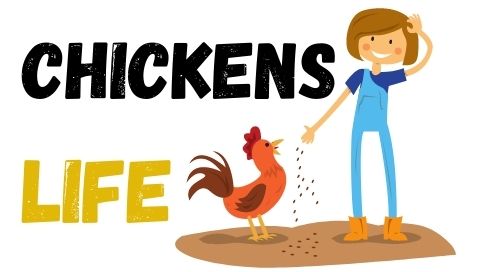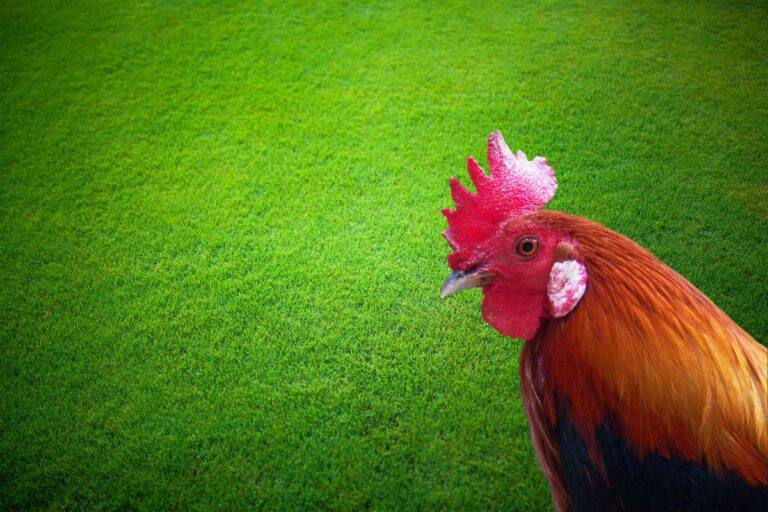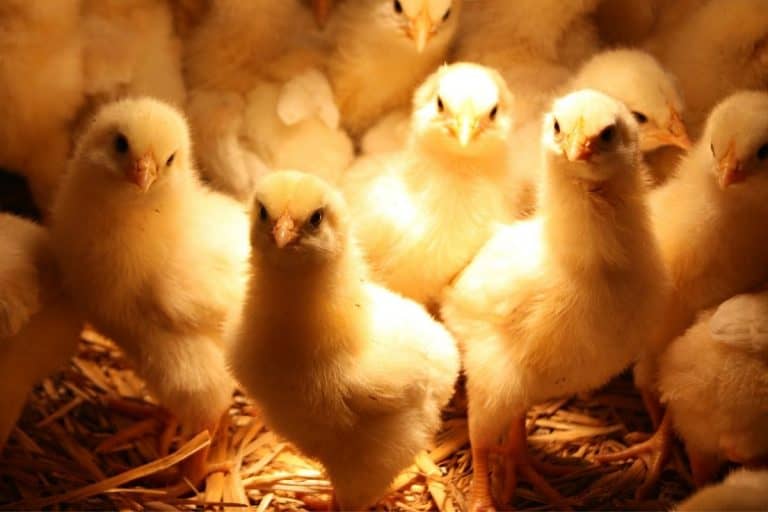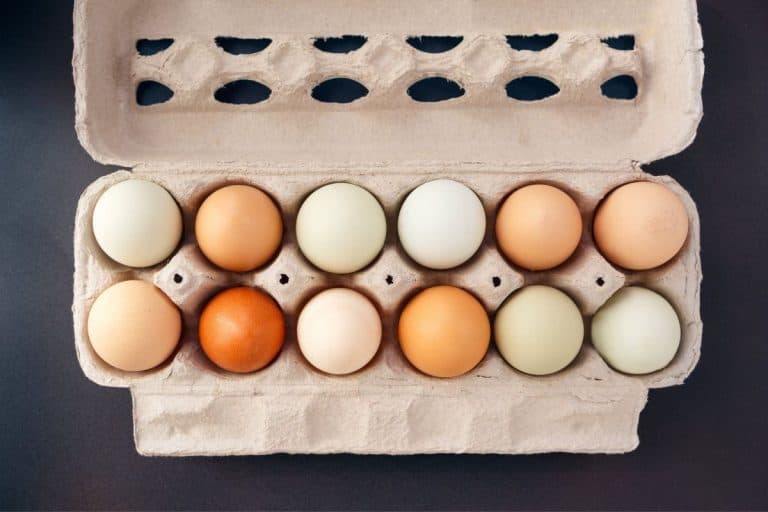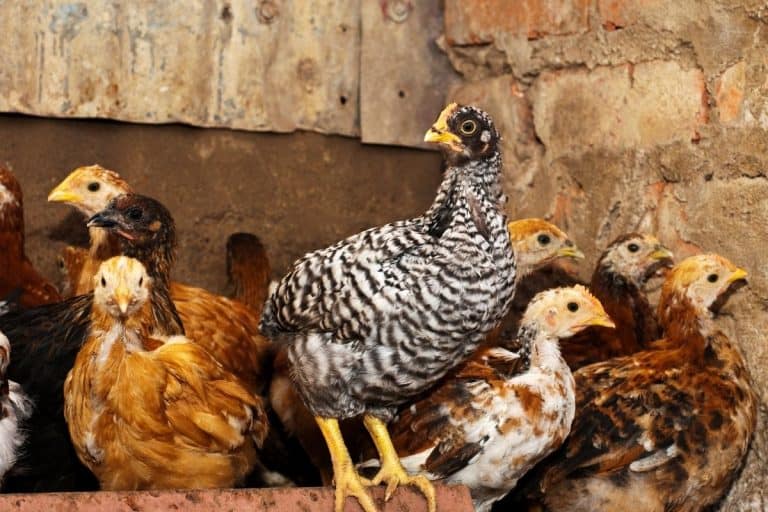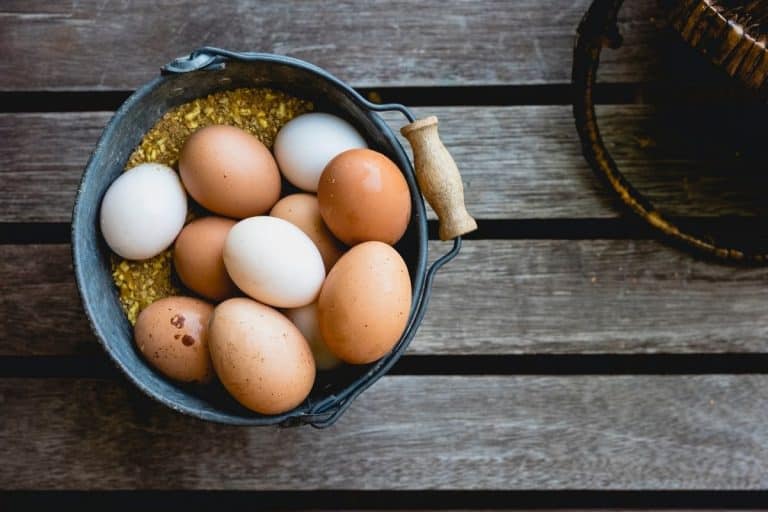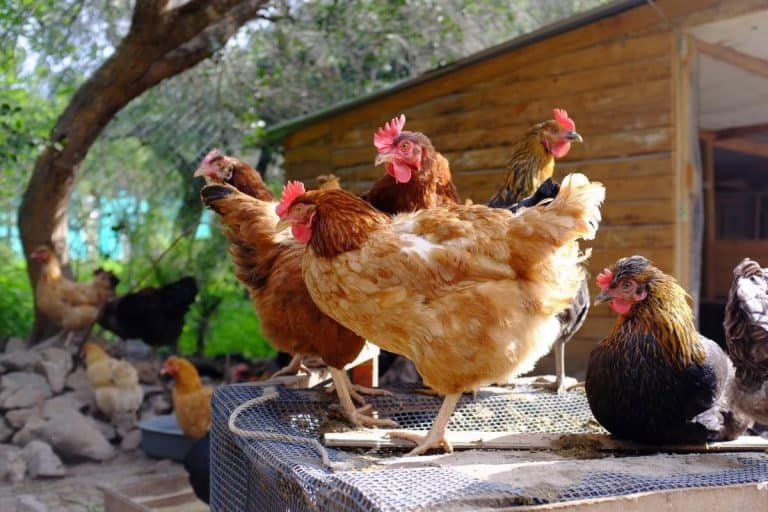Can I Give My Chickens A Bowl Of Water?
Chickens can be fun and rewarding but also messy. They will get poop and dirt on anything without much care in the world, even when it’s their water or food supply. Keeping these things clean can be a challenge if you don’t have the proper containers. When their food or water is left in a bowl, it is at risk of becoming filthy and contaminated, however, bowls and buckets are still something many chicken raisers use to this day.
Chicken water can be given in a bowl as long as the old water is dumped out, the container is cleaned and fresh water is provided at least twice daily or anytime that it is dirty.
When it comes to raising chickens, there always seems to be a fair amount of debate around what containers are best for chicken water, where to keep it, how to keep it clean, etc. So I have gathered some info on the best practices for keeping your chicken’s water fresh and clean and what containers are best.
Hey chicken buddies: Quick heads-up before going further! I've put together a list of stuff I use and love for my flock. If you're curious about what keeps my hens happy, click here to find out.
How Should I Give My Chickens Water?
Open water systems like cups/bowls, troughs and buckets are nice for flocks of chickens that have multiple breeds and sizes of birds drinking from the same container.
That way you don’t have to worry about how tall or how elevated the system is so all the chickens can access it. Using water fountains and nipple watering systems are also excellent options for those who are wanting less mess.
I always suggest going with what your birds are more comfortable with. They will oftentimes use the water device that they are more familiar with and will ignore the other one, so try not to provide too many options for your birds to choose from.
Water Bowls And Troughs
Water troughs and bowls provided to chickens can be great for some chicken owners, but those of us that don’t have a lot of time to check on their cleanliness will struggle more. I personally prefer to use waterers that are elevated such as the gravity or nipple types (you can find an example here). This is because I don’t have time to clean them and check on them several times a day.
Troughs and bowls can become easily contaminated with chicken poop, dirt, bedding and other debris. This is obviously not good for your chooks, as they run a risk of sickness or disease from unsanitary water.

Some water troughs have a hose attached that will fill the container as it reaches a certain level. These vessels are also nice because they can provide water to chickens of all sizes, especially our smaller chooks like the bantams.
Pros:
- Works well with flocks that have many different breeds and sizes of chickens
- Durable and easy to clean
- Autofill feature can be convenient
Cons:
- Easily dirty
- Some troughs are expensive
Gravity Water Fountain
The standard gravity fountains are the most common types of waterers for chicks as they tend to be safer for them as they are less likely to drown.
Adult chickens aren’t really at risk of drowning in their water fountain, thankfully. The water empties from the top into a small and shallow trough around the outside of it.
They come in various sizes, ranging from pretty small for the baby chicks, to ones that can hold several gallons for larger adult flocks. These particular water fountains are great for keeping their supply clean unless you have that weird bird who stands on top of it and defecates in the water anyway. This does happen.
I have a few gravity waterers because they are easy to keep clean, I am super busy and don’t have time to change the water three times a day, plus I waste much less! I think that the metal ones are best because they develop less green algae.
Pros:
- Cheap and common
- Super easy to set up
- Many different sizes and works well for all ages
Cons:
- Dirt can be kicked in if not elevated
- Plastic can melt
- Easily knocked over if small or not secured
Nipple Waterer And Water Cups
Both the nipple watering system and the watering cups are similarly styled. They are both above the chickens and they have either a nipple or a tiny plastic cup that they peck at to get water out of.
It almost reminds me of a hamster or guinea pig waterer. These are convenient and also waste less water, but sometimes they have issues with becoming clogged from hard water build-up. They also freeze easily in the wintertime.

Another downside is if you have a bird that is maybe a little less intelligent than the average chicken, and they struggle with the idea of pecking to receive water. I have seen where one or two chickens just don’t understand the process. In that case, you may have to change your waterer or hope that they figure it out by watching the others.
Pros:
- Keeps water clean
- Minimizes water waste
- Reasonable priced
Cons:
- Can freeze in the winter
- Hard water build up can clog lines
- Chickens sometimes need training to use them
Wait, I have some recommendations for you!
Before you go any further, I want you to take a look at some of the recommendations I've handpicked for you. I think these are essential items you should have for your chickens flock. You can check them out and buy them directly from Amazon.
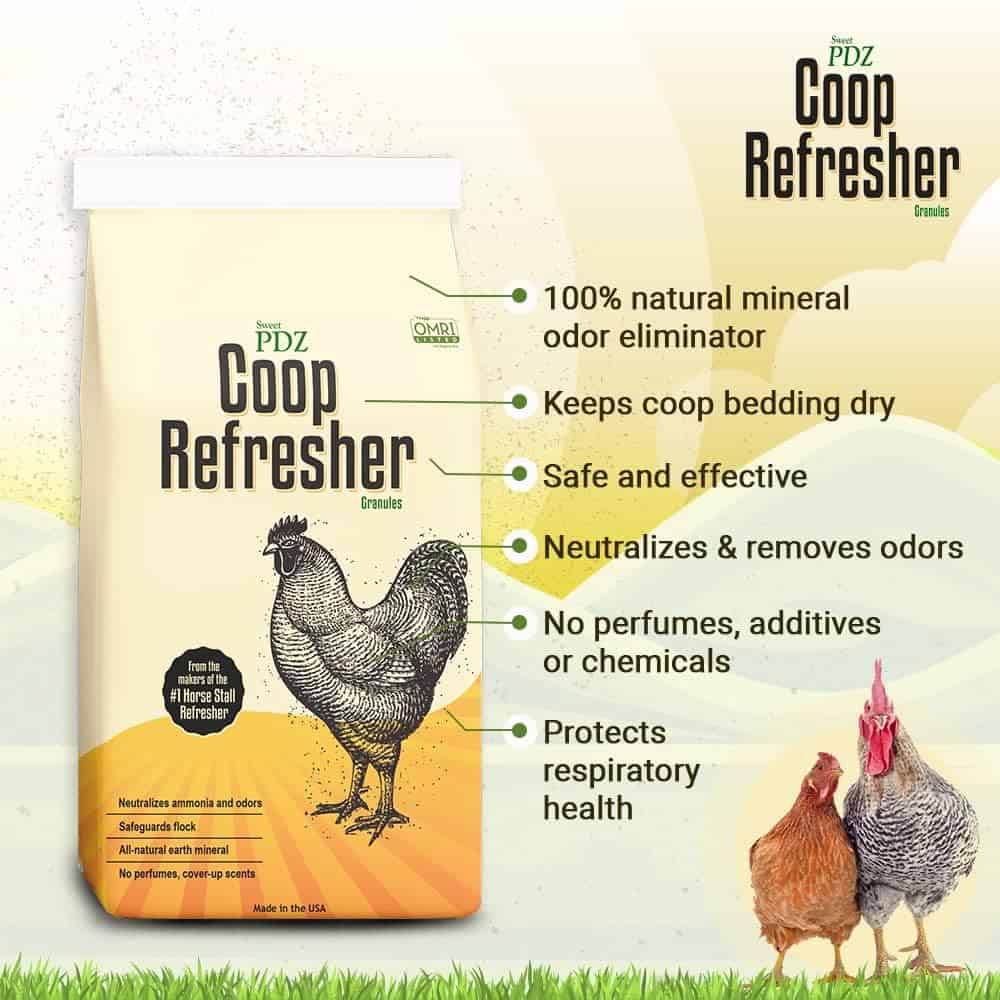 | 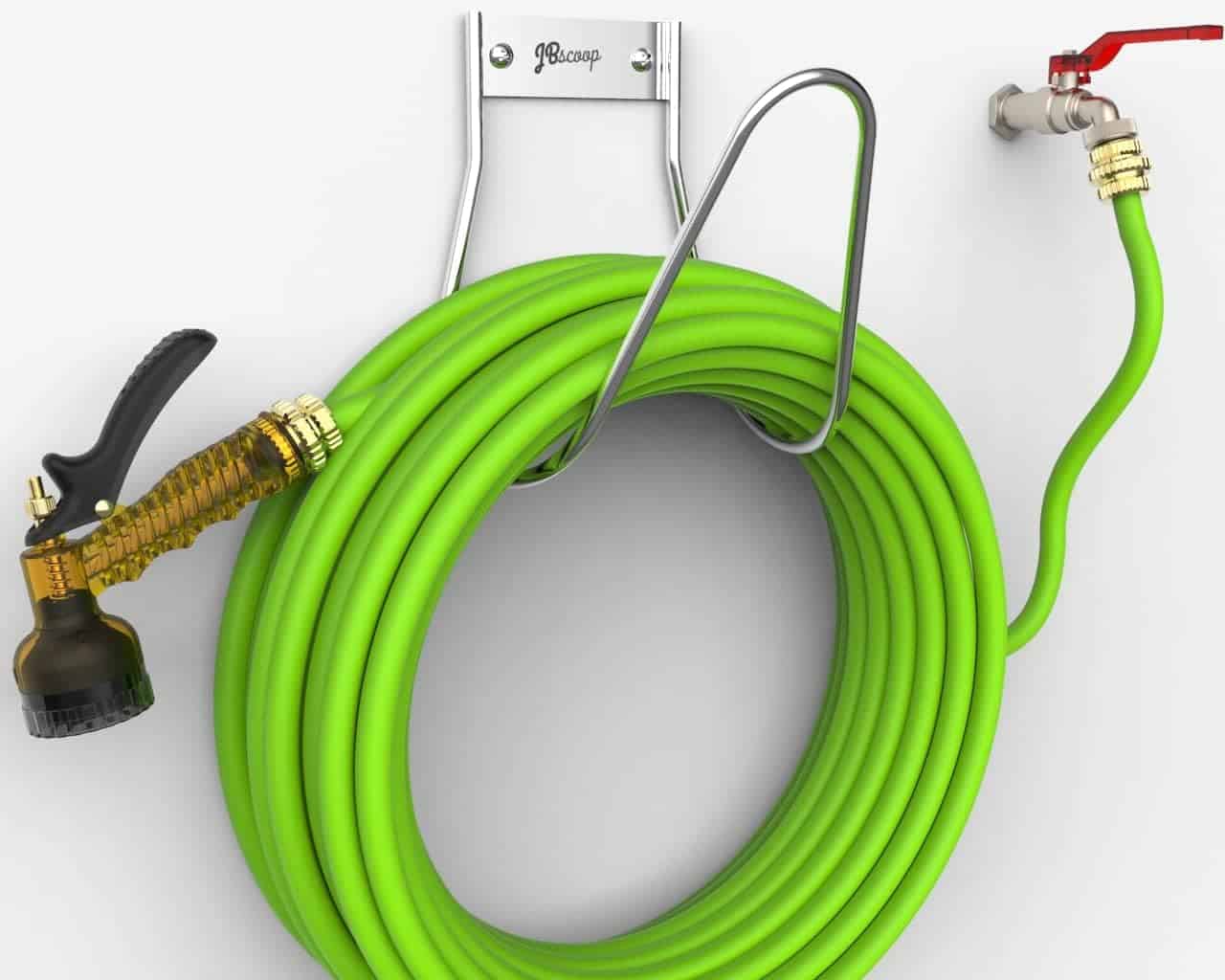 | 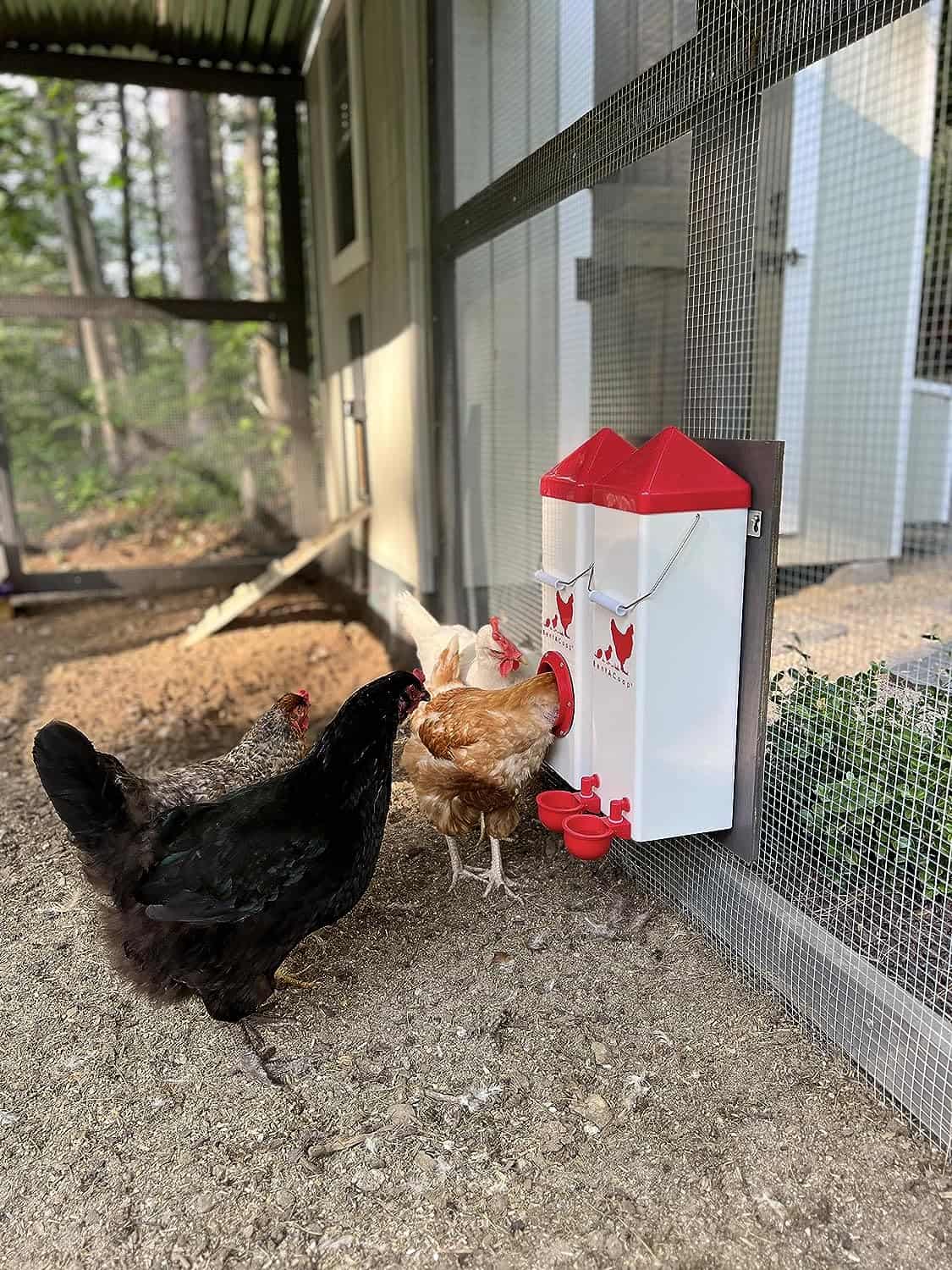 | 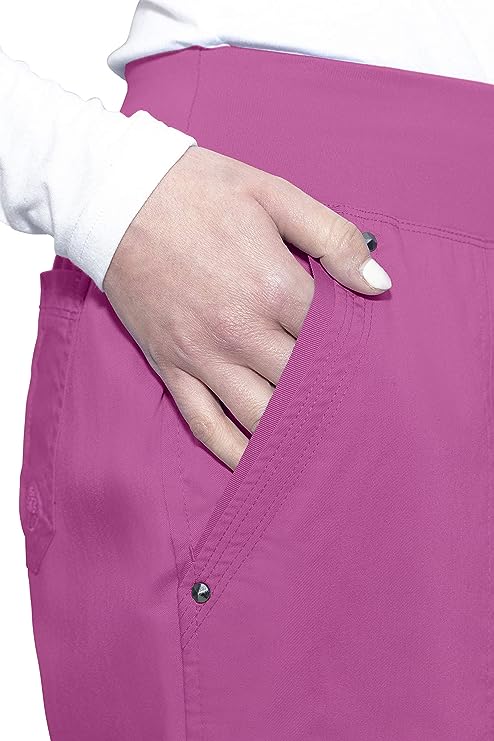 |
| Essential accessory for your coop | No more tripping over hoses! | Predator protection made easy | Comfort + style is possible |
Where Should I Keep My Chicken’s Water?
As a general rule, the water supply should always be outside the coop, unless it is so bitterly cold that you don’t want your chickens to go out.
I have found that when you leave your water in their coop, it is at higher risk of contamination, not to mention you will be cleaning your coop more often than you should be too.
This is another subject that I see a lot of differing opinions on. Many flock owners will say that having your chicken’s water supply inside the coop is totally fine but others say that the water should only be kept outside.
When you keep their water supply in their coop, even the nipple watering systems which create far less mess than the others, they will get water on their bedding. When water mixes with the bedding, you have to remove all of that damp material otherwise you will run a risk of mold and unsanitary air conditions in the hen house.
How Can I Keep My Chicken’s Water Clean?
How you keep your chicken’s water supply clean is firstly very dependent on the type of container you use. Depending on what you go with will decide how easy it is to keep it clean.
If you use a trough or a bowl, just expect to be out there dumping the water out at least twice daily. More if you have particularly messy chooks.
I like to use the standard gravity style waterer. I have a large metal one that works great for my flock and I rarely have an issue with them kicking bedding and dirt into the outer water well. I elevate my gravity fountains on a brick, just high enough that my chooks can drink comfortably and they can’t contaminate it easily.
The nipple or cup watering systems should already be pretty easy to keep clean as the main water supply is kept far away from the chickens and their little messy feet and butts. One struggle you may have is just with hard water build-up in the lines, clogging them and making it hard for the chickens to receive water.
Regular Cleaning Maintenance
Every waterer should be cleaned weekly, even if it is one that is kept very sanitary and away from most debris. Many of our chicken waterers are prone to developing bacteria or algae on the inside, which can cause a slew of health problems in our chooks if we aren’t careful.
Green algae forms on the inside of our waterers when it is in contact with sunlight. The plastic or clear watering systems are particularly bad about forming this harmful and dangerous algae substance. Regular weekly cleanings with soap and water are all that is really necessary but also applying a small amount of apple cider vinegar can help maintain the water’s pH balance, keeping the algae at bay.
More details in this article: How Often Should You Give Chickens Clean Water?
The Importance Of Clean Water For Our Chickens
Water is one of the most important aspects of life on Earth. Our chickens need a clean and fresh supply of water in order to stay healthy and hydrated. If this isn’t provided to our chooks, then we can certainly expect to see a drop in egg production as well as their overall health condition.
Providing your chickens water in a bowl is totally fine, as long as you remember that you have to be more attentive and change the water frequently. After all, chickens don’t have any qualms about how dirty they are and will quickly contaminate a perfectly clean bowl of water just because they feel like it.

